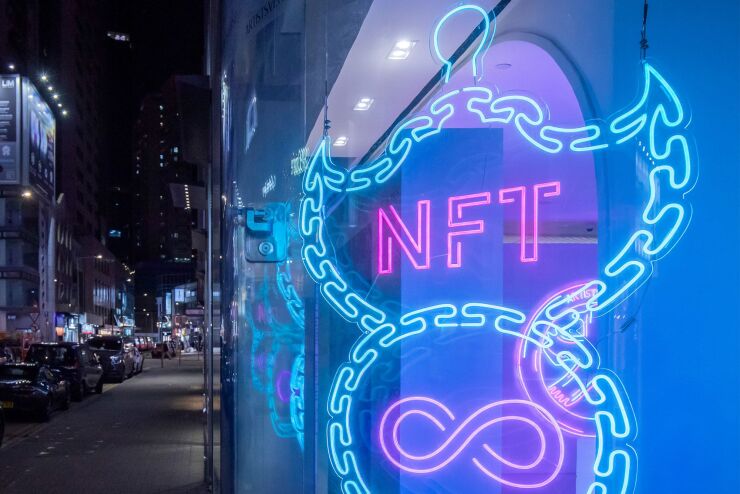The U.K.’s tax watchdog seized three nonfungible tokens as part of a suspected case of value-added tax fraud worth 1.4 million pounds ($1.9 million), in the first ever domestic enforcement action of this kind.
Three people have been arrested on suspicion of attempting to defraud the authority, allegedly using a web of 250 fake companies, Her Majesty’s Revenue and Customs said by email. Authorities also seized other crypto assets worth about 5,000 pounds, while the NFTs have yet to be valued.
NFTs, a type of digital asset that can be traded over blockchain networks, gained widespread popularity among crypto traders and art aficionados alike last year, even breaking their way into top auction houses such as Christie’s and Sotheby’s with multimillion-dollar sales. The market is worth

The tokens, which symbolize ownership of a digital artifact like music or an image, are typically bought and sold using the cryptocurrency Ether. The most popular ones take the form of digital avatars that owners can use as their profile picture online, like those featured in collections from the Bored Ape Yacht Club or CryptoPunks. These assets can be worth millions of dollars, and have attracted celebrity attention in recent months from the likes of Paris Hilton, Reese Witherspoon and Serena Williams.
“Our first seizure of a Non-Fungible Token serves as a warning to anyone who thinks they can use crypto assets to hide money from HMRC,” said Nick Sharp, HMRC’s Deputy Director Economic Crime. “We constantly adapt to new technology to ensure we keep pace with how criminals and evaders look to conceal their assets.”
It comes a week after the U.S.
“This case demonstrates yet again that criminals can’t hide in the world of crypto,” said David Carlisle, head of policy and regulatory affairs at crypto research firm Elliptic. “Enforcement agencies are able to track and trace criminals’ transactions, and seize NFTs and crypto assets used in illicit activity, robbing criminals of their profits.”
The suspected fraudsters are alleged to have used sophisticated methods to try and hide their identities including false and stolen identities, false addresses, prepaid unregistered mobile phones, Virtual Private Networks (VPNs), false invoices and pretending to engage in legitimate business activities, HMRC said.
“Fraudsters typically thrive where asset values inflate rapidly, so it’s no surprise to see them capitalizing on the growth of NFTs,” said Sam Roberts, a partner at law firm Cooke, Young and Keidan. “While removing the need for lawyers may have been one of the lofty goals of public blockchains and the asset classes on which they are based, in practice that has not happened — frequently because of thefts and fraud.
Law-abiding creators and owners “should be encouraged that the courts are continuing to support digital ownership rights, and we should expect to see more of this in future,” he said.





